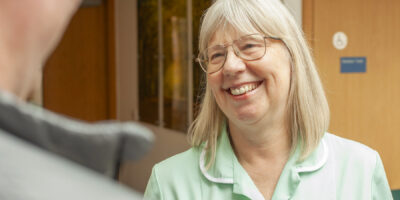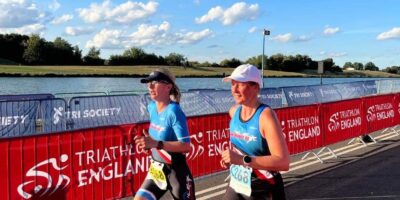The team spoke to members of the community about three screening programmes: Diabetic Eye, Abdominal Aortic Aneurysm (AAA) and Breast Screening. Colleagues also discussed with the group the importance of knowing your body and what’s normal for you and if you notice any unusual changes to speak to your GP.
Gill Pickersgill, Communications & Engagement Officer, said: “I want to thank everyone at the Sheffield Chinese Community Centre for inviting us to come and talk to their members. There were around 30 people at the event who were all so engaging, asking lots of questions and sharing their experiences. Thank you to Vince Yuen, Health and Well Being Development Worker, who coordinated the event and translated our written information and our talks to their members.”
Screening saves thousands of lives each year but not everyone takes up their all-important invite. NHS and social care colleagues visit local groups, events and work places to speak to members of the public about the screening process to encourage eligible men and women across South Yorkshire and Bassetlaw to take up their free NHS screening.
Vince Yuen, Health & Wellbeing Development Worker, said: “Thank you to the screening team for visiting our community centre. The event was a great success and was very interactive, involving our members and encouraging them to ask questions. Hopefully the information and advice they were given will encourage them to attend their screening appointments.”
For more information on all the NHS Screening programmes and who is eligible, go to: https://www.nhs.uk/conditions/nhs-screening/.
Further information:
Diabetic Eye Screening looks for any damage from diabetic retinopathy, a condition which is one of the most common causes of sight loss among people of working age. Screening is a way of detecting the condition early before you notice any changes to your vision as diabetic retinopathy doesn’t usually cause any noticeable symptoms in the early stages. Everyone with diabetes over the age of 12 is invited for screening annually. This screening is separate to tests you have at routine opticians appointments. It is also important to be aware, if your GP informs you your diabetes is in remission you could still be at risk of diabetic retinopathy so must still attend your annual screening appointments.
Abdominal Aortic Aneurysm screening involves an ultrasound scan which looks for a bulge or swelling in the aorta, the main blood vessel that runs from the heart down through the chest and tummy. AAAs don’t usually cause any obvious symptoms, and are often only picked up during screening. If not spotted early the aneurysm can get bigger over time and could burst, causing life-threatening bleeding. Men at the age of 65 are invited for screening as they are the age group most at risk. If there is no sign of an aneurysm you will be discharged from the programme and will not be invited again for screening. If an aneurysm is found, the treatment you will receive will depend on the size of the AAA. If you have a family history of AAA, whether you’re male or female, please inform your GP.
Breast screening aims to find breast cancers early using an X-ray test called a mammogram that can spot cancers when they’re too small to see or feel. As the likelihood of getting breast cancer increases with age, all women aged from 50 to their 71st birthday, and registered with a GP, are automatically invited for breast cancer screening every 3 years. If you’re 71 or over, you’ll stop receiving screening invitations but can self-refer by contacting your local screening unit or GP.



